Ministry of Youth Affairs and Sports
Tracing the Genesis: From Ancient Greek Olympics to Modern Olympic Games
A Look at India’s Olympic Journey
प्रविष्टि तिथि:
24 JUL 2024 6:43PM by PIB Delhi
The Paris 2024 Olympics are all set to take place from July 26 to August 11, 2024. Athletes from 206 National Olympic Committees along with the IOC Refugee Olympic Team (EOR) will participate. The games will feature 10,500 athletes competing across 35 venues throughout the country. Let's delve into the origins of the Olympics in light of this monumental event.
Genesis
The Olympic Games boast a rich history that spans over two millennia, deeply intertwining with sport and culture. Originating in 776 BC, the ancient Games were held every four years in honor of the god Zeus, featuring not only athletic contests but also artistic events such as music, poetry, and theatre.
The Revival of the Olympics: The Birth of the Modern Games

In the late 19th century, attempts to revive international sporting events were met with challenges due to disorganization within the global sporting community. This changed when Baron Pierre de Coubertin convened the first Olympic Congress in Paris. Held at the Grand
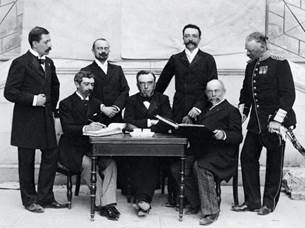
The Beginning of a New Era: The Athens 1896 Olympic Games
The first Olympic Games of the modern era took place in Athens (Greece), the birthplace of the ancient Olympics, in April 1896. Known as the Games of the I Olympiad, this historic event saw the participation of 241 athletes from 14 nations.
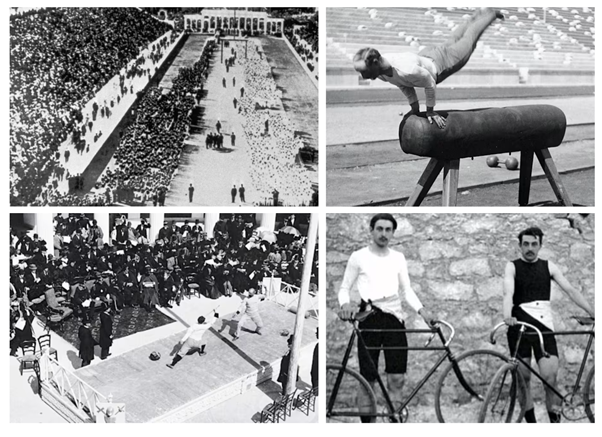
The Athens 1896 Games saw packed stadiums and enthusiastic crowds, particularly for events like the Olympic marathon final, setting the stage for over a century of Olympic history.
Women in the Olympic Games
The Paris 1900 Olympic Games saw women compete for the first time. British tennis player Charlotte Cooper, a five-time Wimbledon champion, became the first female Olympic champion. Out of 997 athletes, 22 were women, competing in tennis, sailing, croquet, equestrian events, and golf.
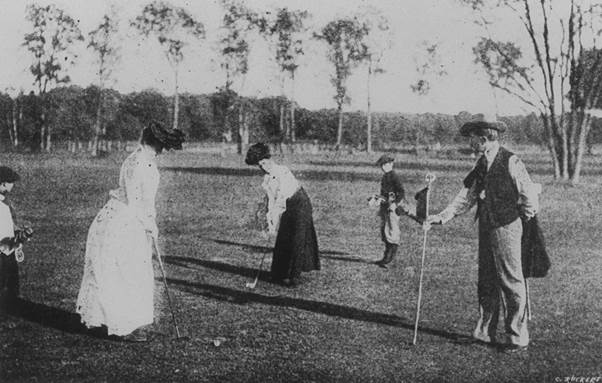
Female participation in the Olympics has steadily increased over the decades, from 13% in 1964 to approximately 48.9% in the 2020 Tokyo Games, thanks to initiatives by the IOC and international federations. Notable milestones include the inclusion of women's boxing at the 2012 London Games and achieving near gender parity in Tokyo 2020. In Rio 2016, 45% of athletes were women, a trend that continued in Tokyo, making it the most gender-balanced Olympics yet with nearly half of all athletes being women.
History of Olympic Games: A Timeline
From the inaugural modern Olympic Games in Athens in 1896 to the upcoming 2024 Games in Paris, the Olympics have evolved significantly. The 1896 Games featured 241 athletes from 14 nations, with Greece leading in medals. Over the decades, the Games expanded in scale and inclusivity, with significant milestones including the first participation of women in 1900 and the introduction of new sports and events.
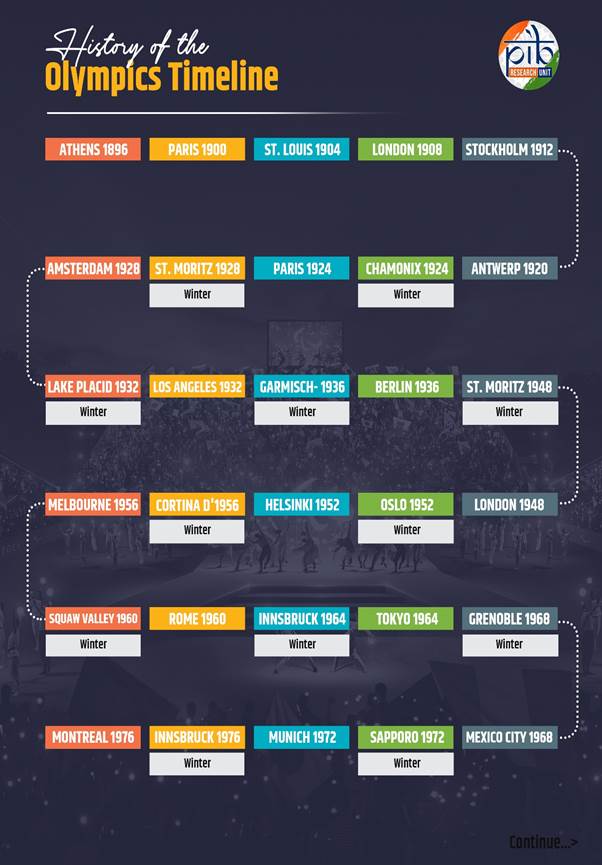
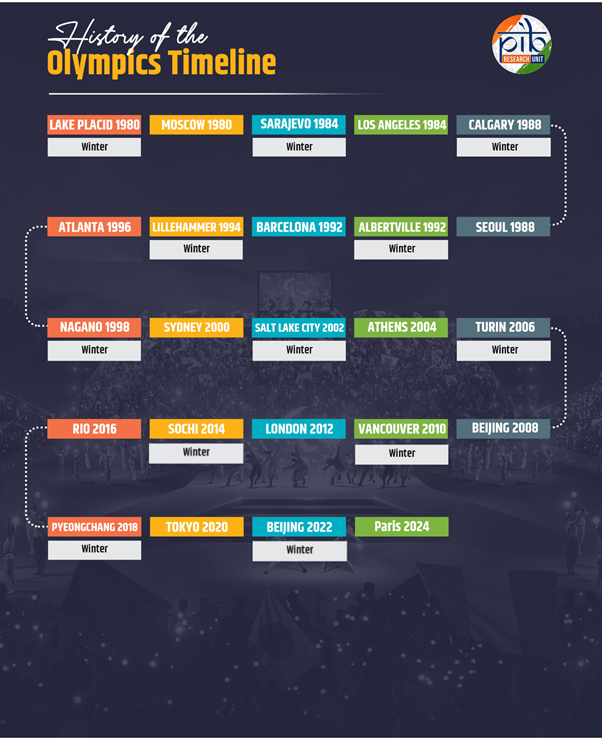
Key Milestones in Olympic History
From the inaugural modern Olympic Games in Athens in 1896 to the upcoming 2024 Games in Paris, the Olympics have evolved significantly. The 1896 Games featured 241 athletes from 14 nations, with Greece leading in medals. The Games have expanded in scale and inclusivity, with significant milestones such as the first participation of women in 1900 and the introduction of new sports and events.
India at Olympics
India's Olympic journey has evolved significantly since its debut at the Paris Olympics in 1900 with just one participant. A landmark moment arrived at the Antwerp Games in 1920 when India sent its first official contingent, marking a century of notable achievements.
The Paris 1924 Olympics indeed marked India's debut in tennis, with five players participating in singles and doubles events. This was followed by the remarkable performance of the Indian men's hockey team at the Amsterdam 1928 Olympics, where India secured its first Olympic gold medal, led by the iconic Dhyan Chand. It is noteworthy that the Hockey team scored 29 goals and did not concede any throughout the tournament, setting a high standard on the international stage.
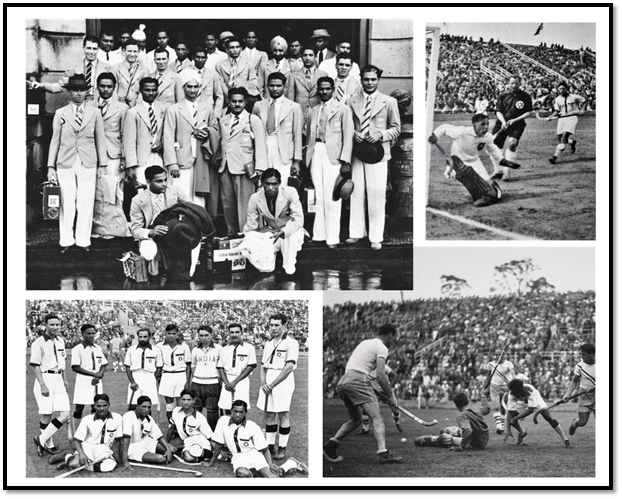
The 1930s and 40s also witnessed the rise of India's men's hockey team, under legendary Dhyan Chand, who secured an unprecedented three consecutive gold medals in Amsterdam 1928, Los Angeles 1932, and Berlin 1936, solidifying the reputation as the world's dominant hockey force.
India's Olympic journey post-independence began at the London 1948 Games, where the nation fielded its largest contingent yet - 86 athletes across nine sports. The Indian hockey team continued its dominance, securing its fourth Olympic gold and introducing Balbir Singh Sr. as a new star.
At the Helsinki 1952 Olympics, wrestler KD Jadhav made history by clinching India's first individual Olympic medal, a bronze. In Mexico City 1968, the hockey team settled for bronze, marking a deviation from its usual top-two finishes. India repeated this achievement at the Munich 1972 Olympics.
In Atlanta 1996, tennis ace Leander Paes won a long-awaited bronze in men's singles, while Karnam Malleswari made history four years later in 2000 by becoming India's first woman to win an Olympic medal with her bronze in weightlifting.
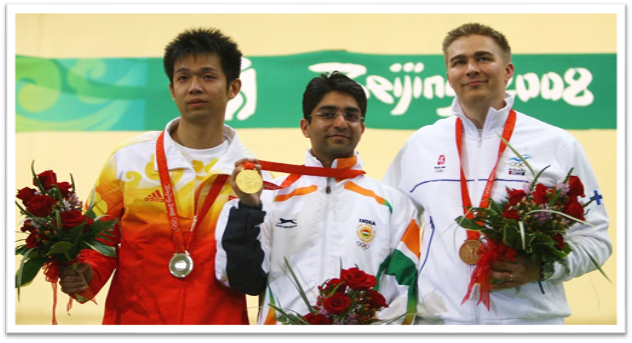
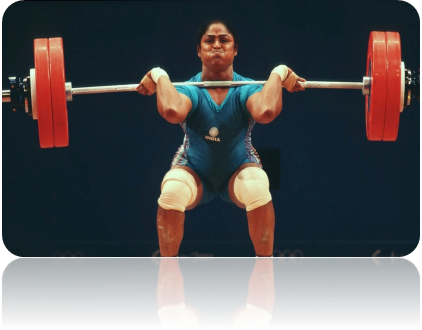
The Beijing 2008 Olympics marked a monumental point for India as shooter Abhinav Bindra secured the nation’s first individual gold medal in the 10m Air Rifle event, setting a new benchmark in Indian Olympic history.
Boxer Vijender Singh and wrestler Sushil Kumar also claimed bronze medals, marking India’s first multi-medal haul since 1952.
India’s rise at 2012 London Olympics
At the 2012 London Olympics, Saina Nehwal earned India’s inaugural badminton Olympic medal. Sushil Kumar secured his second Olympic medal, and Gagan Narang, Vijay Kumar, Mary Kom, and Yogeshwar Dutt added to India’s tally, reaching six medals, the highest at that time. Rio 2016 saw PV Sindhu and Sakshi Malik as India’s sole medallists, marking the first instance where all medals were won by female athletes.
India’s best performance at Tokyo Olympics
Tokyo 2020 proved historic for India with a total of seven medals. The men’s hockey team ended a 41-year medal drought with bronze, while the women achieved their best-ever fourth-place finish. Neeraj Chopra clinched India’s first track-and-field gold in javelin throw, ensuring a poetic end to the campaign.
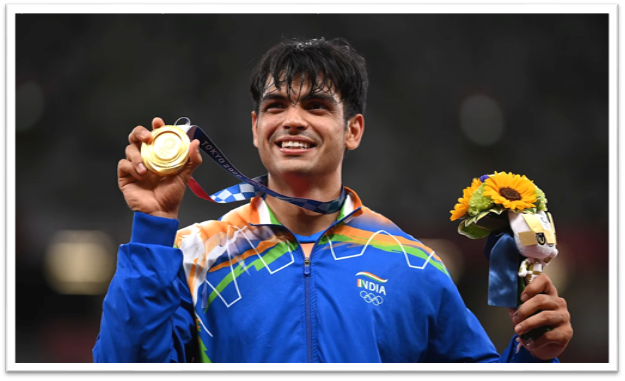
Over the decades, India's Olympic history has been punctuated by remarkable achievements: a record eight gold medals in hockey, including six consecutive victories, KD Jadhav's historic individual medal for independent India, Abhinav Bindra's groundbreaking gold at Beijing 2008, and Neeraj Chopra's historic track-and-field gold at Tokyo 2020.
India’s eye on Paris Olympics 2024
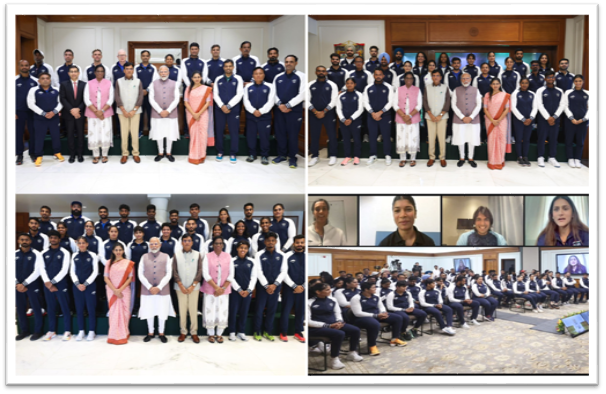
Looking ahead to the Paris Olympics, India proudly announced its largest-ever contingent of 117 athletes across 16 diverse sports disciplines, comprising 70 men and 47 women. These athletes will compete in 69 events with an opportunity to secure a total of 95 medals. Supported by substantial funding of over 470 crore rupees by the government, India's athletes are poised to leave a lasting impression on the global stage.
Click here to see in PDF:
References
https://olympics.com/en/paris-2024/paralympic-games
https://olympics.com/en/news/the-history-of-the-olympic-games
https://olympics.com/ioc/pierre-de-coubertin
https://olympics.com/en/olympic-games/olympic-medals
https://olympics.com/en/news/paris-1900-games-at-the-centre-of-the-world
https://olympics.com/en/news/india-olympics-history-medals-athletes-performance-results-position
Santosh Kumar/Sarla Meena/Ritu Kataria/Sheetal Angral/Abhinandan Sharma
(रिलीज़ आईडी: 2036514)
आगंतुक पटल : 5494